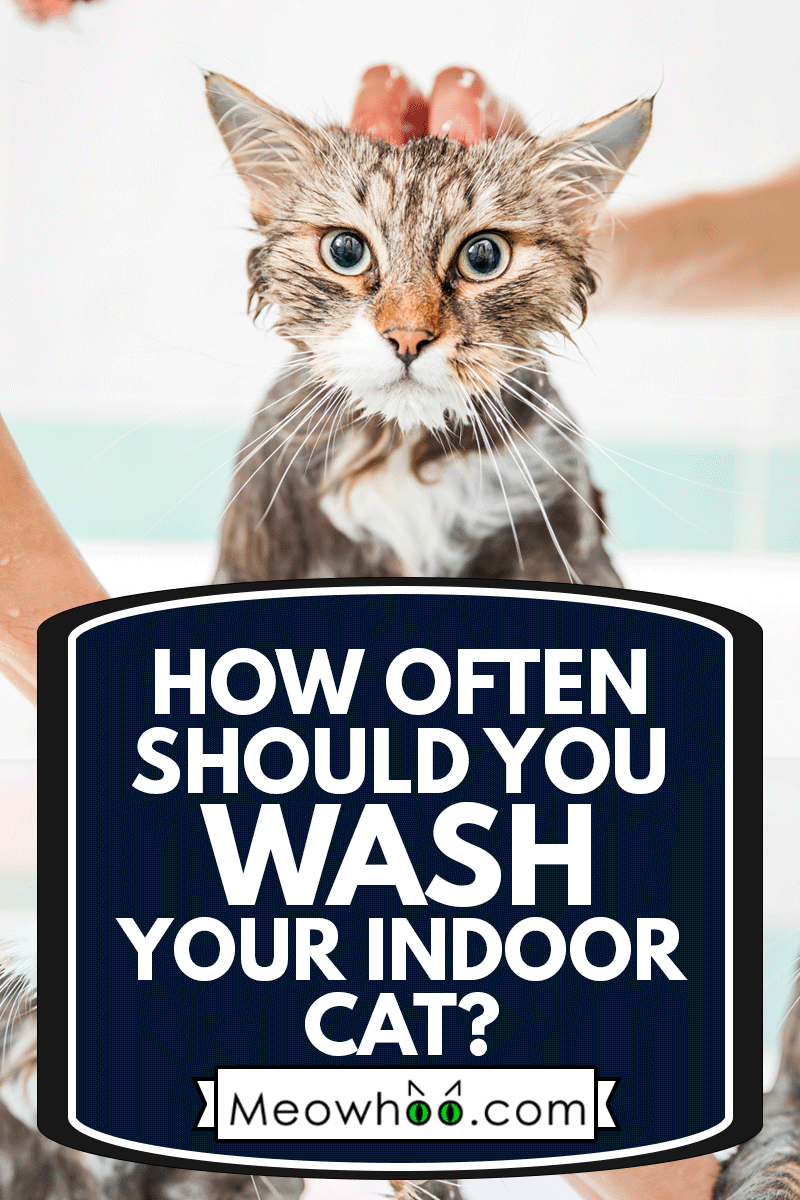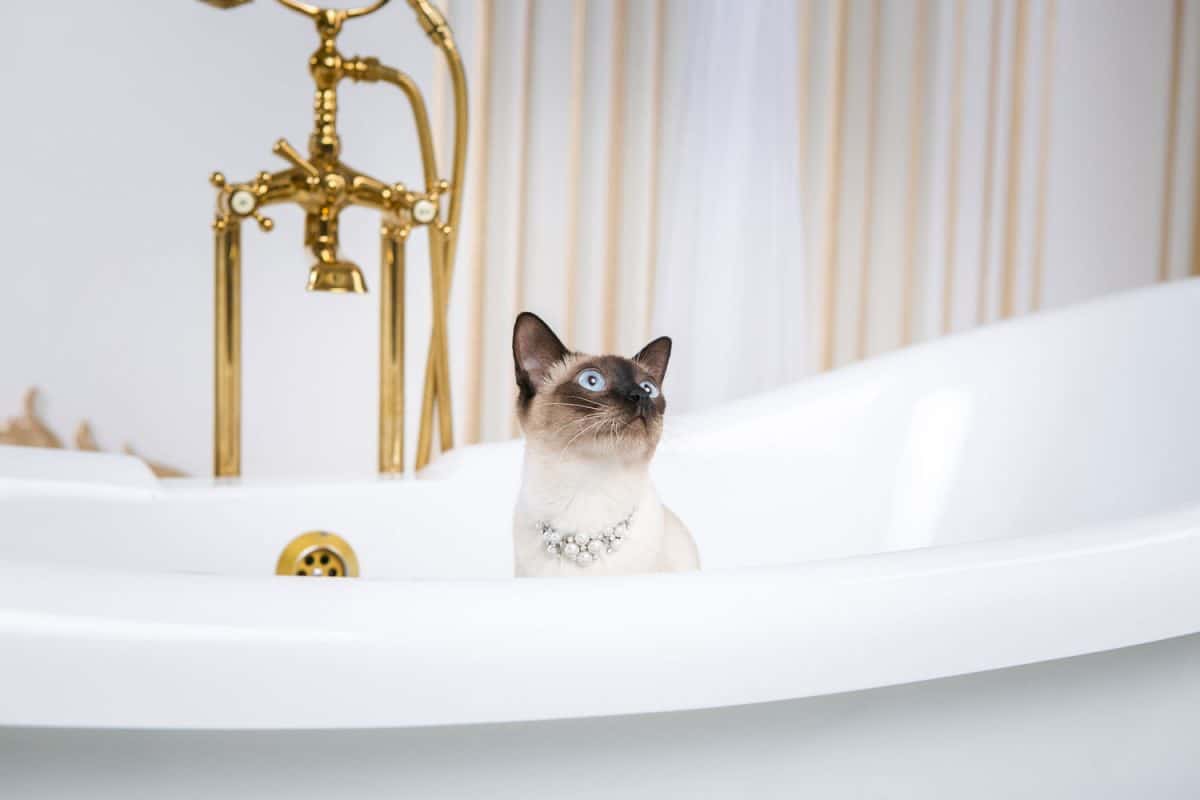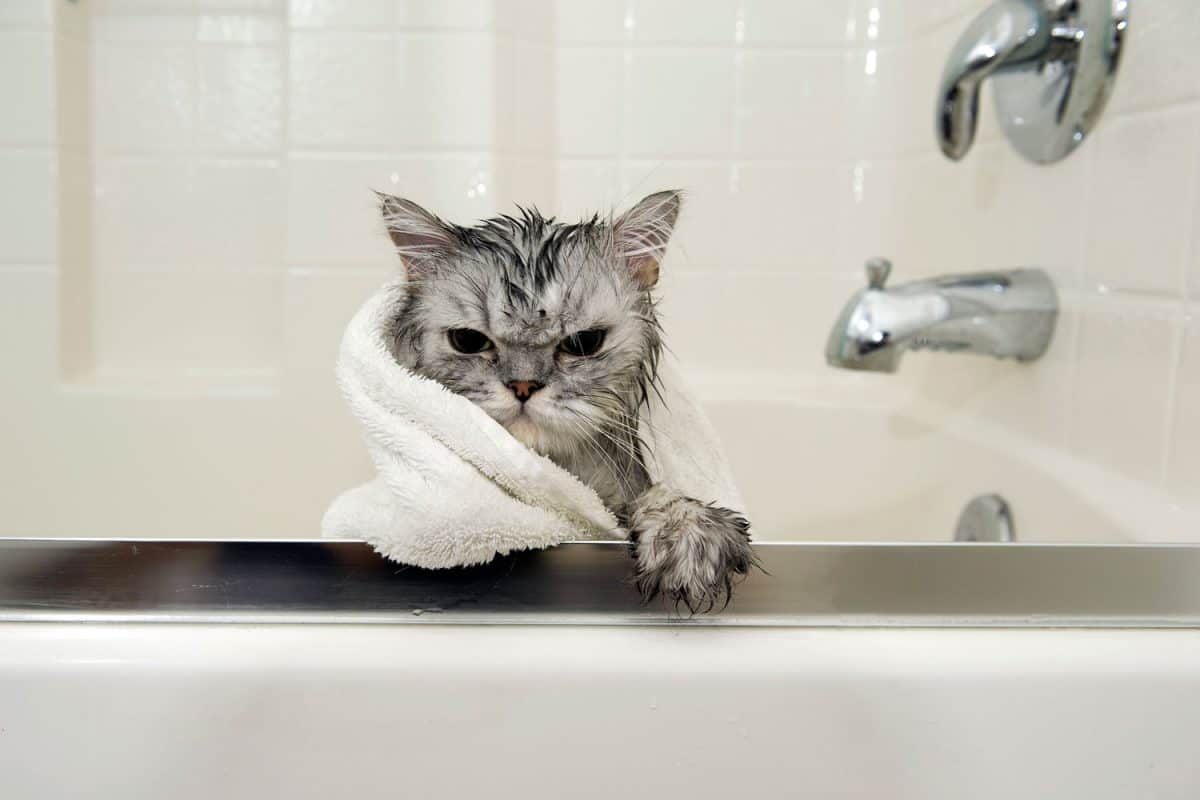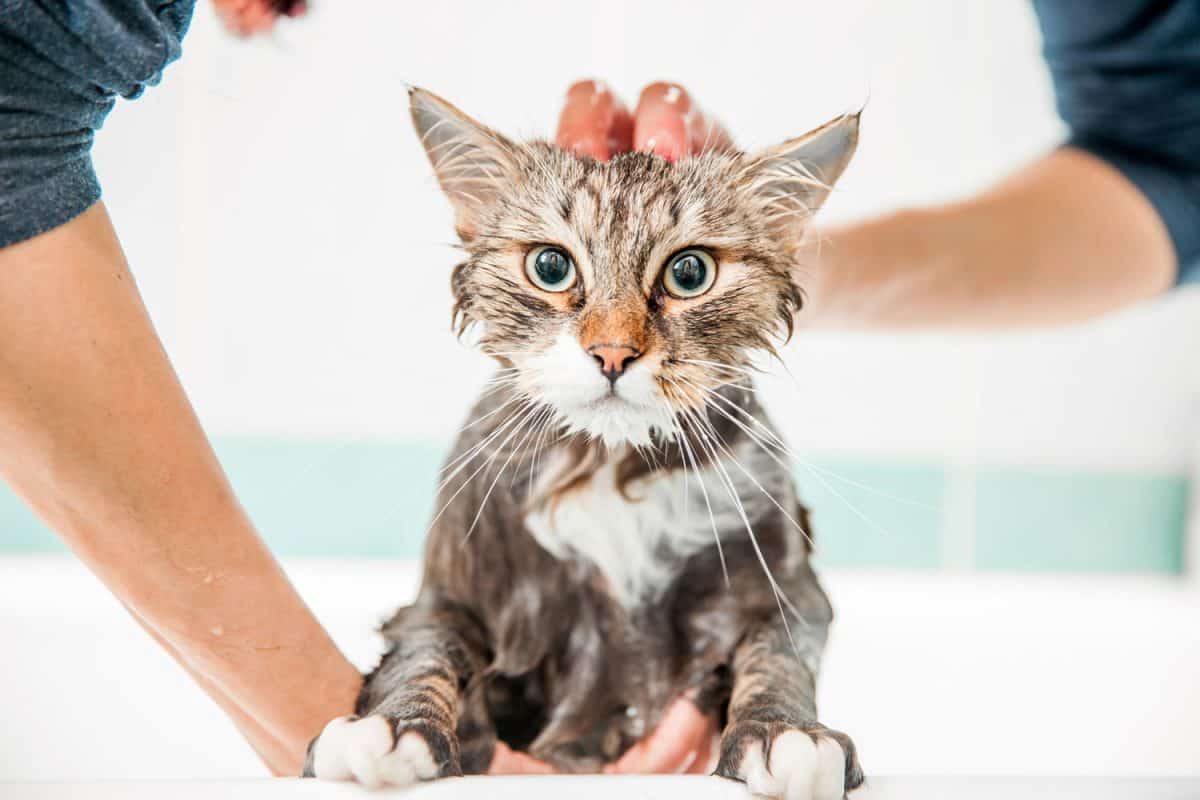Most felines are self-grooming creatures, which means they don’t need frequent washing. With that in mind, you might be wondering, how often should you wash your indoor cat? We've researched and consulted the experts in the pet industry to find and give you the answer.
If a home is reasonably clean, indoor cats need to be bathed and blown dry at least once every 4 to 6 weeks. Although these pets will still have relatively spotless skin and fur during that period, giving your household felines a deep clean will help their coats from matting or pelting. Here are a few tips to help you and your pet feel less stressed during the bathing session:
- Observe your pet during the bathing session. Some cats like showers while others may like the bathtub.
- The water’s temperature and pressure should be as comfortable as possible.
- Don’t splash water on your cat’s face.
- Reduce your pet’s stress while washing them by playing calming music in the background.
- Give your cat treats.
Continue reading for more information about the frequency of bathing your indoor cat. Plus, we’ll tackle other relevant questions, such as how to make your cat more comfortable in the bath and why many cats hate water.

Washing Your Indoor Cat
The National Cat Groomers of America suggests that indoor cats have a wash and blow-dry once every 4 to 6 weeks. Pet parents who leave their felines to their self-grooming habits may increase the risks of the animals' fur getting matted or pelted.
Elderly, obese, or injured cats may need more frequent washing than healthy felines. Cats with health concerns may not have optimal mobility to groom by themselves. And so, pet parents should help their cats clean by wiping their fur and skin with a damp, sanitized napkin at least once a week.
You can also bathe your cat after adoption. Once you bring your new pet home, wash the animal down with the ideal water pressure and temperature to remove dirt and harmful bacteria they might have picked up from the shelter.
However, don’t bathe your cat once a week. Bathing the feline too often than necessary can put them at risk of losing their natural oils from their fur. Short-haired cat breeds, like the Exotic Shorthair, British Shorthair, and Siamese cat, may only need weekly brushing sessions to help clean their fur and skin.
Check out the Breezytail PetO’Cera Cat Shampoo on Amazon.
How To Make A Cat-Friendly Washing Time

Aside from drinking, it can be tough to make cats go near water. Some felines may scratch, squirm, and meow in distress while taking baths. You can implement the following techniques to help your pets stay calm while you’re bathing them.
Choose Your Cat's Preferred Bathing Method
Some cats tend to be picky in terms of bathing methods. Certain felines may like the shower while others tend to prefer washing in the bathtub. Other cats might even prefer their human parents to be as close to them as possible to feel relaxed during bathing sessions.
Mind The Water
Water should always be at a comfortable pressure and temperature when bathing a cat. Think of your indoor feline as a human infant during this time. Increasing the water pressure, or if the water is scalding or freezing, can hurt your pet.
Keep The Water Away From The Cat's Eyes
Like most humans, most cats don’t like the water getting in their eyes. If you're using the faucet or a showerhead to bathe your cat, only direct the water from the neck down. Clean your cat’s face using your hands or a clean cloth.
Play Calming Music
Many cats can relax while being washed by listening to calming music. Scientists at the Louisiana State University investigated and concluded that music with a beat similar to a human heartbeat can keep some felines calm. Such type of music includes Scooter Bere’s Aria by David Teie and Élégie by Fauré.
Give Treats
Cats tend to be more difficult to train than dogs because canines are generally more social than their feline counterparts. But it’s still possible for pet parents to calm their stressed household felines with treats, especially during bath time.
Take a look at the Temptations Cat Treats on Amazon.
Do Indoor Cats Need Baths?
In general, indoor cats don’t need baths. However, some cats may become adventurous to satisfy their curiosities, leading to messy situations. Some relatively common scenarios are as follows:
- Your cat's fur and skin have pests.
- Your cat rummages through the trash.
- The cat goes outside and gets something dirty stuck in their fur.
A quick wipe or rinse can help remove some of the unclean substances from your household pet. However, you should take your cat to the groomer if the feline looks dirtier than usual.
Is It Bad To Wash Your Cat Once A Week?
Yes, washing your cat every week is bad. Pet parents shouldn’t treat their cats’ bathing regimens like their own bathing routines. Washing and using cat shampoo on your pet’s fur can cause more harm than good.
Similar to shampoos for humans, you shouldn’t use just any pet-friendly bathing solutions on your cat. Otherwise, you’re going to strip healthy oils from your pet’s fur, causing issues like dryness and falling-out hair.
When Should I Start Bathing My Cat?
Cat parents can bathe their kittens that are as young as 8 weeks of age. However, take note of using extra care as these little furballs are more fragile than their adult counterparts.
For instance, don’t use cold water when bathing your kitten. Instead, use lukewarm water because your young pet can’t regulate their body temperatures properly, yet.
Why Do Cats Hate Water?
Some cats like to dip their bodies in the water, but many felines don't like the idea of going near it. However, the main reason why cats avoid water tends to differ for each pet.
Some speculate that the domestic cat hailed from their ancestors that used to live in dry climates. Because these cats aren't used to bathing in bodies of water, such as rivers and lakes, they developed a dislike for those wet locations.
Another reason could be that many cats are meticulous with their coats. Wet fur is more difficult to manage than relatively dry hair. Therefore, your pet may want to stay away from dousing their fur in the water to remain as presentable as possible.
Will My Cat Hate Me After a Bath?

If your cat doesn’t like bath time, he or she won’t hate you after the bathing session. However, your pet may not be happy about the event and might stay away from you for a few minutes. You can try to recover your cat’s mood by giving them treats.
If you have yet to buy treats, find out which is the best by checking out our post on Top 10 Cat Treat Brands.
Final Words
You should wash your healthy indoor cat at least once every 4 to 6 weeks. On the other hand, if your household feline is already a senior animal or if they have certain health problems, you may increase the bathing frequency.
If your cat doesn’t need a bath, don’t force the cleaning session upon them. Otherwise, you’re going to risk removing the natural substances in the cat’s fur.
Some elements on this page may have been created by our team using advanced AI to provide you with top-notch cat inspired ideas. Read more about our AI Content Policy.



